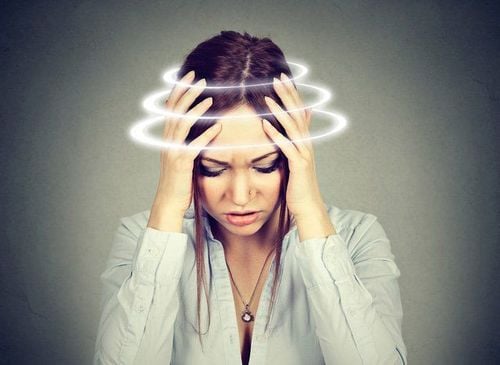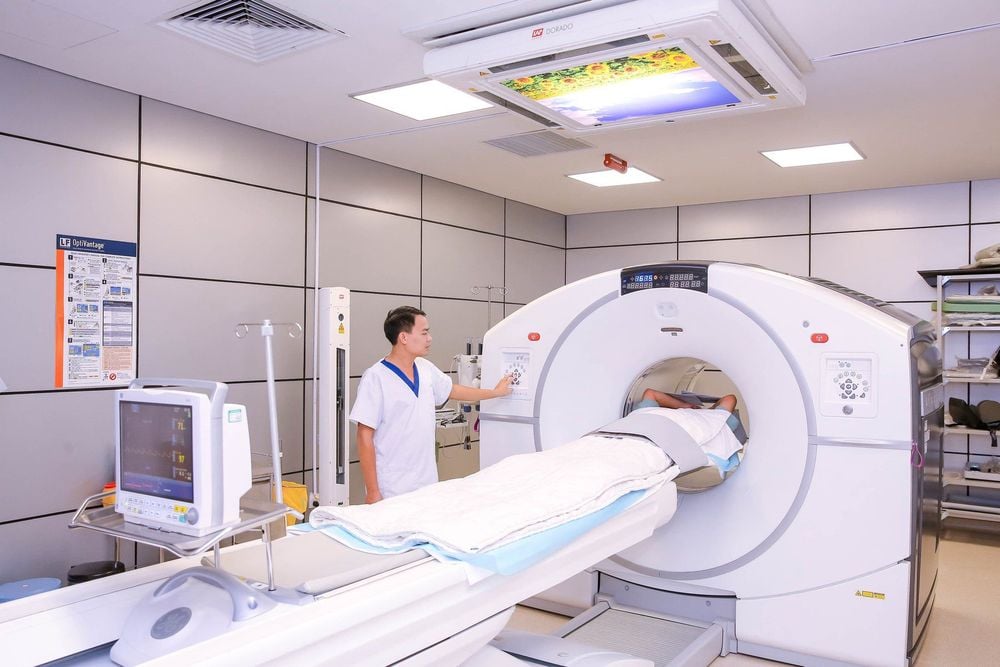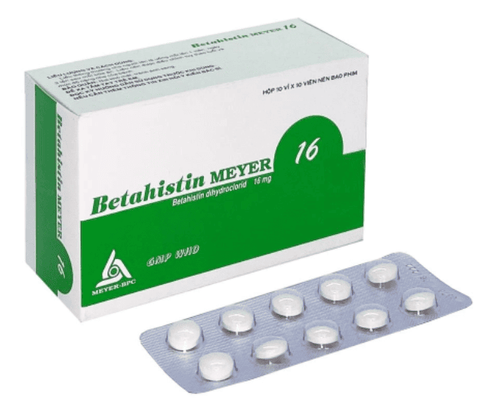This is an automatically translated article.
The vestibule of the cochlea is a structure that helps the body maintain balance. Medical problems or trauma can lead to vestibular disorders. Vestibular syndrome is a common disease, presenting with dizziness and loss of balance, in some cases vision and hearing problems.
1. Acute vestibular syndrome
Acute vestibular syndrome is an acute lesion on one side of the central or peripheral vestibule, due to many different causes, common causes such as vestibular neuritis and central lesions, multiple sclerosis, ...
The peripheral vestibular system includes the vestibular labyrinth and the vestibular nerve, which has the function of keeping the body's balance. Therefore, when patients with vestibular syndrome, the most common symptom is dizziness, loss of balance, in addition, there may be other symptoms such as tinnitus, nausea, sweating, heart palpitations. ,...
Vestibular syndrome is divided into 2 groups based on anatomical location:
Central vestibular syndrome: when the vestibular pathways are damaged to the vestibular nucleus in the brain stem. Peripheral vestibular syndrome: when there is damage to the inner ear, nucleus and vestibular cord.
2. Symptoms
Vestibular syndrome is manifested mainly by subjective symptoms including dizziness, objective symptoms such as loss of balance, nystagmus
Dizziness: is a motor hallucination, the patient has a sensation of objects spinning around, may fall when dizzy, gait disturbance. In addition, there are also symptoms of autonomic dysfunction such as sweating, nausea, feeling of falling, spinning very strongly and discomfort Loss of balance: common in the early stages of peripheral vestibular syndrome Patient cannot stand. In addition, through examination tests such as romberg's sign, stellar step,... can occur at a moderate level. Eyeball nystagmus: is an automatic movement of the two eyeballs, characterized by a rhythmic, regular appearance and a continuous change of direction of alternating movements,...

Triệu chứng chóng mặt ở người bệnh
3. Diagnosis
To diagnose acute vestibular syndrome, the doctor will base on the patient's clinical manifestations and combine with the results of laboratory tests such as:
Basic tests X-ray of the cervical spine to evaluate cleft stenosis joints Ultrasound of carotid vertebrae, identification of atherosclerotic plaques, arterial dissection causing embolism, stenosis CT-Scaner of the brain, cranial MRI to look for lesions such as cerebrovascular accident, platelet angle tumor brain,... The symptoms of acute vestibular syndrome are similar to those of a stroke. Therefore, there is a need to differentiate acute vestibular syndrome from stroke.
People with acute vestibular syndrome often present with dizziness, turning to one side, or swaying, possibly due to damage to the semicircular canals or the central vestibular system. Acute dizziness is often accompanied by a feeling of loss of balance when walking and standing and is associated with nausea, vomiting and autonomic disturbances.
Based on the course, time and recurrence of motor hallucinations to determine the cause of acute bleeding such as:
A few seconds to several minutes: due to benign paroxysmal positional vertigo, transient ischemic attack of the basal artery Minutes to hours: Meniere's disease, migraine with dizziness Few days: vestibular neuritis, cerebellar stroke, labyrinthitis, demyelinating pathology. Frequent dizziness, not improving for weeks: psychological

Chụp CT-Scaner sọ não giúp chẩn đoán chính xác bệnh lý
4. Treatment
Treatment of acute vestibular syndrome depends on the cause and most importantly, the management of acute dizziness to prevent accidents for the patient
Anti-vertigo: includes drugs such as tanganil 500mg injection form and oral form Antiemetic: Metoclopramide Replace electrolytes with isotonic solution if the patient vomits a lot Sedation: Seduxen Acute vestibular syndrome is an acute injury of many causes, patients often present with severe dizziness Loss of balance makes it easy to get injured, accident, and fall. Therefore, when seeing abnormal symptoms, the patient should be immediately taken to a medical facility by family members for examination and timely intervention.

Người bệnh nên gặp bác sĩ để được tư vấn và điều trị kịp thời
Vinmec International General Hospital is one of the hospitals that not only ensures professional quality with a team of leading medical doctors, modern equipment and technology, but also stands out for its examination and consultation services. comprehensive and professional medical consultation and treatment; civilized, polite, safe and sterile medical examination and treatment space.
Customers can directly go to Vinmec Health system nationwide to visit or contact the hotline here for support.
MORE:
What is vestibular disorder? Vestibular dysfunction treatment Vestibular dysfunction treatment













